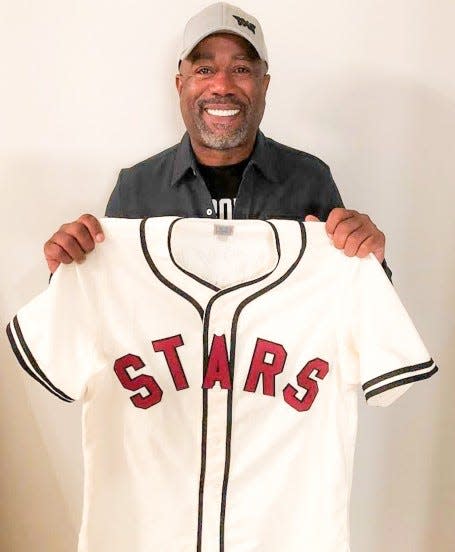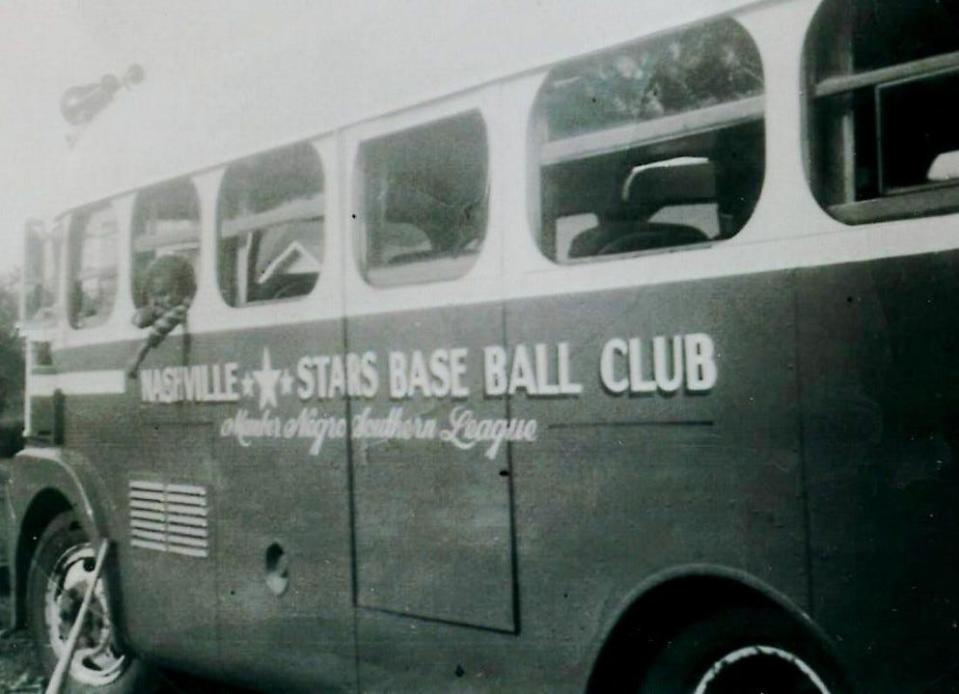Nashville Stars can't stop talking about equity, here's why that's a good thing | Hill
As a resident of the historic Black North Nashville neighborhood Buena Vista, I see how fast the neighborhood is changing due to gentrification. That's why I am worried about the prospect of Major League Baseball possibly coming to the city.
I'm a Nashville development skeptic.
The saturation of restaurants, hotels and skyscrapers surfacing the city has left this seven-year Nashvillian cynical.
Outgoing Nashville Economic Development Director Courtney Pogue says it best: "Nashville's at a crossroads."
These businesses come to the city and make tons of money, but how does the ordinary citizen benefit? Growing income inequality, inflation and stagnant wages have made the average citizen wary of big-ticket items like new sports stadiums.
A recent Tennessean article reported a 20% rise in housing costs in the last year. Not to mention childcare costs rose 40% and gas costs have increased by 68% over the last 12 months. Wages have not kept up with the pace, rising by just 3%.
In the sports world, Nashville has four stadiums that house three pro teams — the Tennessee Titans, Nashville Predators and Nashville SC — and one minor league baseball team in the Nashville Sounds.
The proposed $2.2 billion Titans stadium has caused major skepticism from community leaders and citizens alike about the use of public tax dollars.
How will a sports stadium benefit a city when not all of its citizens can afford the average Titans ticket prices of $92?
Nashville needs to demand that developers create a pipeline of wealth into the communities they impact.
The Nashville Stars hope to begin a new cycle
The Stars, named in honor of two Negro League teams, hope to win a bid to bring Major League Baseball to Music City. The current site they hope to place their 42,000-seat stadium is in North Nashville, beside historically Black college and university Tennessee State University.

Some residents fear this new development, if it happens, will accelerate longtime Black residents being forced out of the neighborhood.
Edward Henley III, a native of the Nashville Bordeaux neighborhood, understands this challenge and he hopes the Stars can lead to positive change.
"We don't want (change) to happen to the community, we want the community to be a part of it," Henley told me in an interview. "The only way you do that is you take control. You get in the into the driver's seat and you say this is the type of significant impact we wanna have happen."
Taking the driver's seat is vital for a Black community that's been in the past left behind by Nashville's economic growth. For Henley, capitalizing on the money and growth means investing in projects like the Stars.
"Our communities of color are having hundreds of millions of dollars poured into them. This is a project at the appropriate scale to say that we want to control our future."

Your state. Your stories. Support more reporting like this.
A subscription gives you unlimited access to stories across Tennessee that make a difference in your life and the lives of those around you. Click here to become a subscriber.
The time for equity is now
Equitable development is key to what the Stars want to accomplish.
In a list of aspirations, Music City Baseball board member Dr. Eddie Hamilton wants to grow the Black middle class. Statistics show there's a long road to go.

The Community Needs Evaluation, conducted by Metropolitan Social Services shows that 16% of Black Nashvillians live in poverty. Nearly half of Black mothers in the city live in poverty.
The time for equity is now. History can't repeat itself.
"If we do this and it looks the same way as it looked across town when the Titans came then we failed," said Hamilton on the need for intentional equitable efforts. "The difference has be that we have built wealth in the Black community, that we have included the historically disinvested in what we're doing."
I spent over an hour talking with Hamilton and Henley, and it's refreshing to me that they represent a hopeful sports franchise hat has equity as its north star.
Beyond the words and promises that the Stars make, which I hope they make good on, it's the action from the community that will hold them accountable.
This a tall order for the Stars. But its a challenge they've made for themselves.
We'll have to wait to see if there will even be a future for the Stars, but they'll certainly have Nashville's attention.
LeBron Hill is an opinion columnist for the USA TODAY Network Tennessee and the curator of the Black Tennessee Voices newsletter. Feel free to contact him at LHill@gannett.com or 615-390-3874. Find him on Twitter at @hill_bron or Instagram at @antioniohill12.
This article originally appeared on Nashville Tennessean: Nashville Stars can't stop talking about equity, that's a good thing

